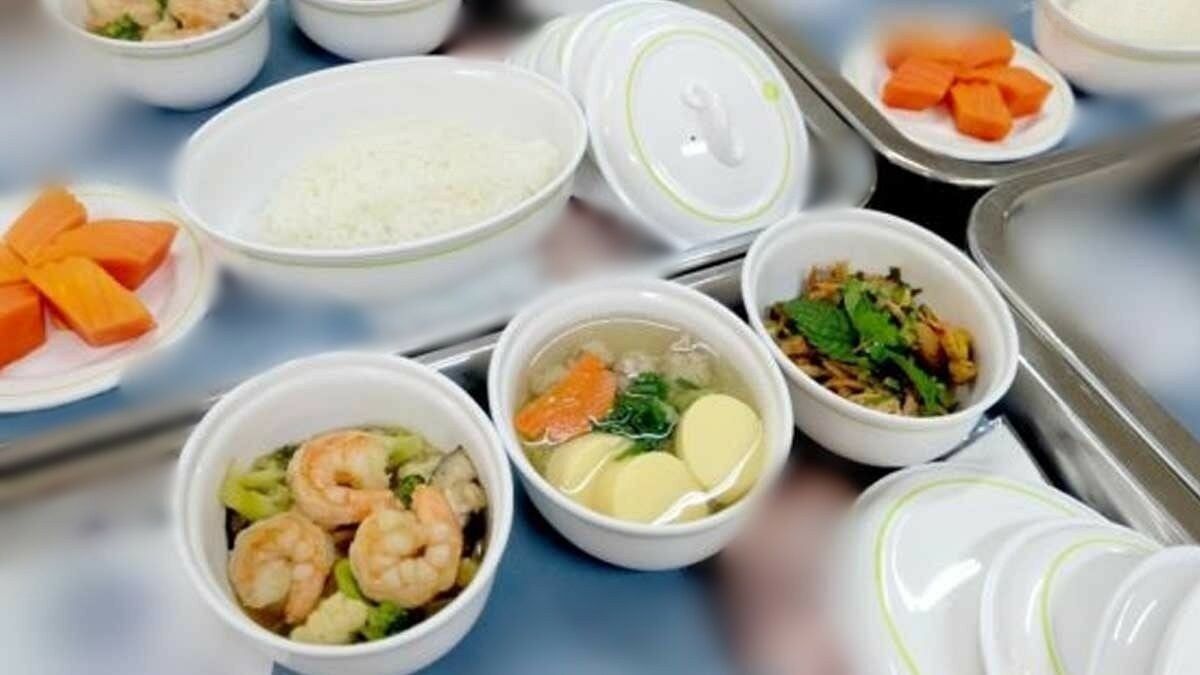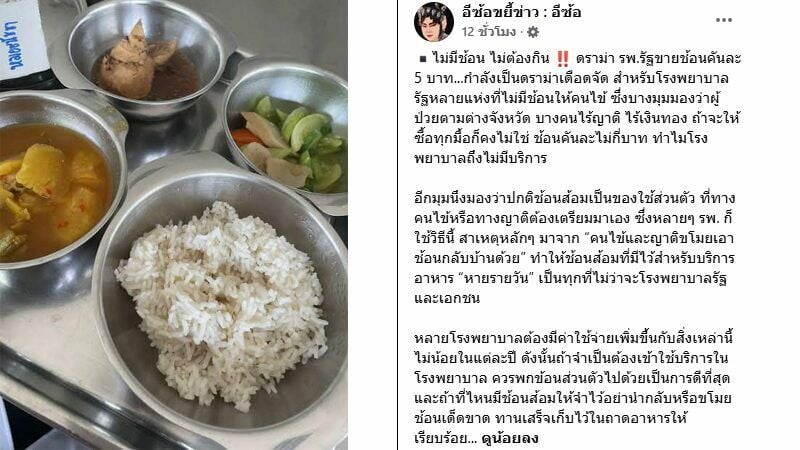Sisaket hospital criticised for charging patients 5 baht per spoon

Controversy erupted over public hospitals in Thailand selling spoons to patients for 5 baht each. This practice, particularly at Kantharalak Hospital in the Sisaket province, was initially introduced during the Covid-19 pandemic to prevent virus spread but it has now drawn criticism.
The issue gained attention when a popular online page highlighted the situation, igniting a debate about the responsibilities of hospitals in providing basic amenities to patients.
The online post suggested that patients, especially those from rural areas or without relatives, might struggle to afford purchasing utensils for every meal. Critics argue that even though the cost of a spoon is relatively low, it should be the hospital’s responsibility to provide these as part of the service.
Some hospitals defend the policy by explaining that utensils are personal items that patients or their families are typically expected to bring. This policy is not uncommon, as it helps hospitals manage the frequent disappearance of utensils, which are often taken home by patients or their visitors.
This loss of utensils results in significant additional expenses for hospitals each year, both public and private. As a preventative measure, patients are encouraged to bring their own spoons when admitted to the hospital and to always return any borrowed utensils after meals.
The Sisaket Provincial Public Health Office addressed this issue yesterday, December 16. Tanong Weerasangpong, the provincial health officer, confirmed that Kantharalak Hospital did indeed sell spoons and forks to patients.
This was initially implemented as a convenience for patients during the pandemic, to avoid unnecessary trips outside the hospital to buy personal items. He emphasised that while patients were encouraged to use personal items to limit infection risk, the hospital provided utensils for those who needed them.
“The use of personal items was emphasised during the pandemic to reduce the risk of spreading the virus. However, to assist patients, the hospital offered utensils for purchase when necessary.”

Further investigations revealed that no other hospitals in the Sisaket area have adopted this practice. Typically, when meals are served to patients, utensils are provided as part of the hospital service. However, due to the frequent theft of utensils, Kantharalak Hospital opted for this interim solution to manage resources better.
The hospital has since reverted to its original practice of providing utensils to patients without charge, reported KhaoSod.
“From the reports I have received, the issue of missing utensils was significant, prompting internal management changes. However, the hospital has now returned to its previous practice of supplying utensils to patients.”
This incident has sparked a wider conversation about the expectations and responsibilities of healthcare institutions in Thailand. While cost management and infection control are valid concerns, the provision of basic amenities like utensils is an essential part of patient care. The debate continues as hospitals balance these concerns with the need to provide comprehensive care to all patients, regardless of their financial situation.
Latest Thailand News
Follow The Thaiger on Google News:


























